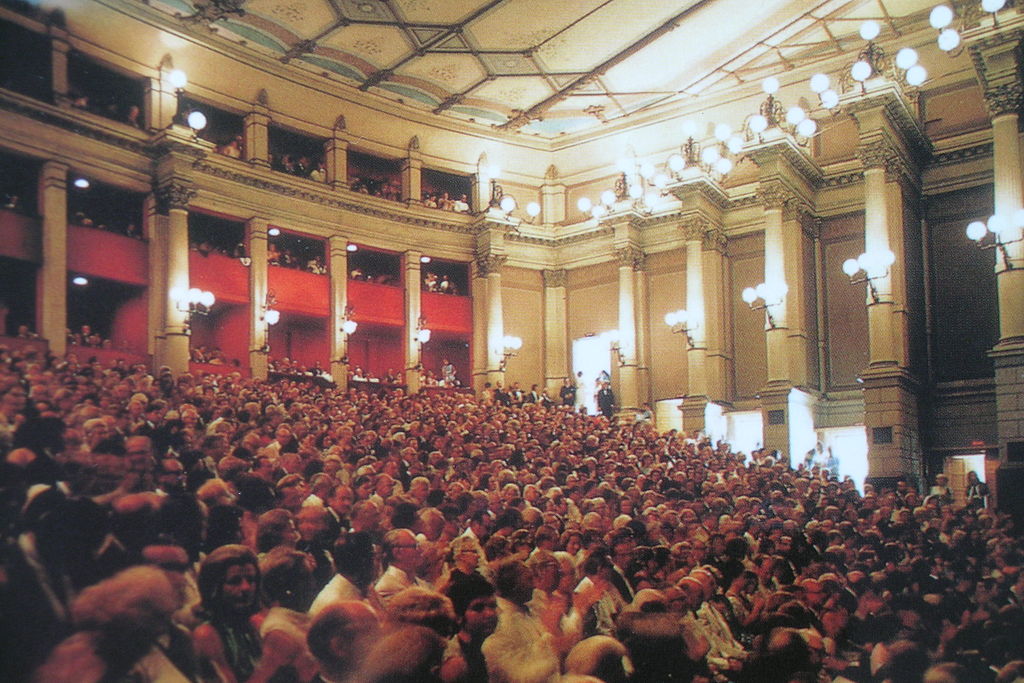
Night of 24th-25th January 1942
Origin of Tristan and Isolda—Cosima Wagner—Wahnfried—The Makart style—Bayreuth—On the Nuremberg Congress.
Whatever one says, Tristan is Wagner’s masterpiece, and we owe Tristan to the love Mathilde Wesendonck inspired in him. She was a gentle, loving woman, but far from having the qualities of Cosima. Nobody like Wagner has had the luck to be entirely understood by a woman. Those are things that life does not owe a man, but it’s magnificent when it happens.
Neither Mozart nor Beethoven, neither Schiller nor Goethe, have had a share of such happiness. In addition to all Wagner’s gifts, Cosima was femininity personified, and her charm had its effect on all who visited Wahnfried. After Wagner’s death, the atmosphere at Wahnfried remained what it had been during his lifetime. Cosima was inconsolable, and never ceased to wear mourning. She had wanted her own ashes to be scattered over her husband’s tomb, but she was refused this satisfaction.
Nevertheless, her ashes were collected in an urn, and this urn was placed on the tomb. Thus death has not separated these two beings, whom destiny had wished to live side by side! Wagner’s lifetime was also that of a man like Meyerbeer! Wagner is responsible for the fact that the art of opera is what it is to-day. The great singers who’ve left names behind became celebrated as interpreters of Wagner. Moreover, it’s since him that there have been great orchestra-leaders. Wagner was typically a prince. His house, Wahnfried, for example! It’s been said that the interior, in Makart style, was over-loaded.
But should a house be mistaken for a gallery of works of art? Isn’t it, above all, a dwelling, the framework for a private life, with its extensions and its radiance? If I possess a gallery of ancestors, should I discard it on the pretext that not all the pictures in it are masterpieces?
At the beginning of this century there were people called Wagnerians. Other people had no special name. What joy each of Wagner’s works has given me! And I remember my emotion the first time I entered Wahnfried. To say I was moved is an understatement! At my worst moments, they’ve never ceased to sustain me, even Siegfried Wagner. (Houston Stewart Chamberlain wrote to me so nicely when I was in prison.) I was on Christian-name terms with them. I love them all, and I also love Wahnfried.
So I felt it to be a special happiness to have been able to keep Bayreuth going at the moment of its discomfiture. The war gave me the opportunity to fulfil a desire dear to Wagner’s heart: that men chosen amongst the people—workers and soldiers—should be able to attend his Festival free of charge. The ten days of the Bayreuth season were always one of the blessed seasons of my existence.

And I already rejoice at the idea that one day I shall be able to resume the pilgrimage! The tradition of the Olympic Games endured for nearly a thousand years. That results, it seems to me, from a mystery similar to that which lies at the origin of Bayreuth. The human being feels the need to relax, to get out of himself, to take communion in an idea that transcends him. The Party Congress answers the same need, and that’s why for hundreds of years men will come from the whole world over to steep themselves anew, once a year, in the marvellous atmosphere of Nuremberg. They’ll come, and they’ll see side by side the proofs we shall have left of our greatness, and at the same time the memories of old Nuremberg.
On the day following the end of the Bayreuth Festival, and on the Tuesday that marks the end of the Nuremberg Congress, I’m gripped by a great sadness—as when one strips the Christmas tree of its ornaments.

